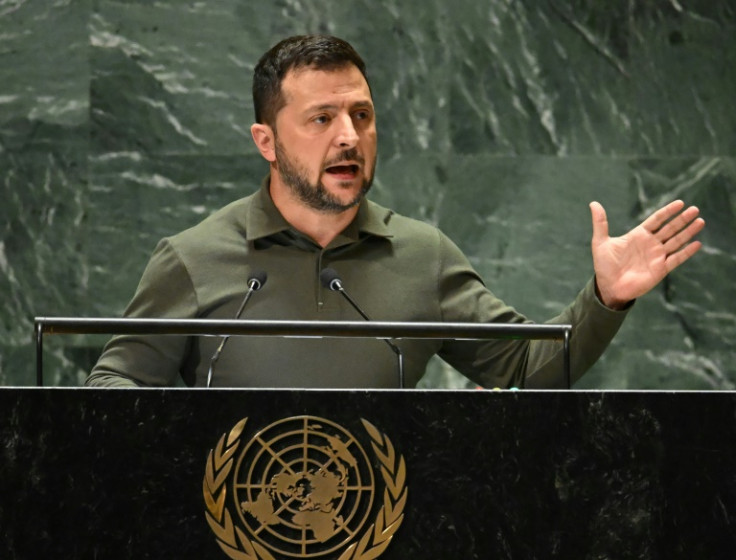Canada Apologise For Applauding Nazi Veteran Amid Zelensky Visit
Both President Zelensky and Prime Minister Trudeau have been criticised for welcoming ex-Nazi veteran Yaroslav Hunka with a standing ovation and round of applause in Canada's parliament building.

Yaroslav Hunka, a 98-year-old who served in a Nazi unit during World War II, was welcomed with open arms by the speaker of Canada's House of Commons.
The speaker, Anthony Rota, noted that he considered Hunka a "Ukrainian hero, a Canadian hero".
"We have here in the chamber today a Ukrainian-Canadian veteran from the Second World War who fought for Ukrainian independence against the Russians and continues to support the troops today, even at his age of 98," Rota recalled.
The crowd responded with unanimous applause and a standing ovation.
"We thank him for his service," Rota continued.
The Centre for Israel and Jewish Affairs, a Canadian Jewish group better known as CIJA, said that praising the former Nazi veteran who played a role in the genocide of Jews was "deeply troubled".
Both Ukrainian President Volodymyr Zelensky and Canadian Prime Minister Justin Trudeau were in parliament when the incident took place.
Shocking images from the Canadian parliament soon circled on social media platforms, depicting both leaders applauding Hunka. Hunka is also seen to be saluting the president, who responds by raising his fist in the air.
Despite being named a "neo-Nazi" by Russian President Putin, President Zelensky is a Jewish man who lost relatives in the holocaust and was visiting Canada to build on Ukraine's relationship with Western allies.
After the images went viral, critics noted that Hunka was part of the First Ukrainian Division – better known as the Waffen-SS 'Galicia' Division, a volunteer unit that was controlled by the Nazis.
Friday, Canadian Parliament honored a 98 year old Ukrainian immigrant who fought the Russians in WW2, Yaroslav Hunka.
— Clandestine (@WarClandestine) September 24, 2023
He fought with the Nazis during the Third Reich as part of the 14th Waffen, aka SS Galincha.
Standing ovations for literal Nazis… pic.twitter.com/dgc8jWGSYH
To this day, the decision that allow around 600 members of the division to live in Canada after World War II is a subject of much controversy.
In the 1980s, the decision also sparked a government investigation into whether Canada had become a safe haven for war criminals.
During World War II, reports recognise that although thousands of Ukrainian soldiers served on the German side, evidence shows that millions more fought in the Soviet Red Army.
The Soviet Red Army, better known as the 'Soviet Union' or 'Red Army', was the army and air force of the Russian Soviet Federative Socialist Republic – dedicated to the recruitment of working-class soldiers.
On Friday 22 September, the speaker apologised to the public, saying: "In my remarks following the address of the president of Ukraine, I recognised an individual in the gallery... I have subsequently become aware of more information which causes me to regret my decision to do so."
Rota continued with: "No one, including fellow parliamentarians and the Ukraine delegation, was aware of my intention or of my remarks before I delivered them. This initiative was entirely my own, the individual in question being from my riding [district] and having been brought to my attention."
"I particularly want to extend my deepest apologies to Jewish communities in Canada and around the world. I accept full responsibility for my actions," he added.
The CIJA quickly responded to his statement, declaring: "We appreciate the apology issued... Proper vetting is imperative to ensure such an unacceptable incident does not occur again."
The Friends of Simon Wiesenthal Center for Holocaust Studies argued in a statement that it was obvious that the division "was responsible for the mass murder of innocent civilians with a level of brutality and malice that is unimaginable".
"An apology is owed to every Holocaust survivor and veteran of the second world war who fought the Nazis, and an explanation must be provided as to how this individual entered the hallowed halls of [the] Canadian parliament and received recognition from the speaker of the house and a standing ovation", the statement continued.
© Copyright IBTimes 2024. All rights reserved.






